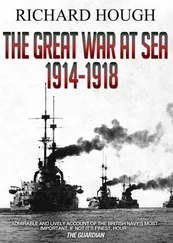Ernest Buley - Glorious Deeds of Australasians in the Great War
Здесь есть возможность читать онлайн «Ernest Buley - Glorious Deeds of Australasians in the Great War» — ознакомительный отрывок электронной книги совершенно бесплатно, а после прочтения отрывка купить полную версию. В некоторых случаях можно слушать аудио, скачать через торрент в формате fb2 и присутствует краткое содержание. Жанр: foreign_antique, foreign_prose, на английском языке. Описание произведения, (предисловие) а так же отзывы посетителей доступны на портале библиотеки ЛибКат.
- Название:Glorious Deeds of Australasians in the Great War
- Автор:
- Жанр:
- Год:неизвестен
- ISBN:нет данных
- Рейтинг книги:4 / 5. Голосов: 1
-
Избранное:Добавить в избранное
- Отзывы:
-
Ваша оценка:
- 80
- 1
- 2
- 3
- 4
- 5
Glorious Deeds of Australasians in the Great War: краткое содержание, описание и аннотация
Предлагаем к чтению аннотацию, описание, краткое содержание или предисловие (зависит от того, что написал сам автор книги «Glorious Deeds of Australasians in the Great War»). Если вы не нашли необходимую информацию о книге — напишите в комментариях, мы постараемся отыскать её.
Glorious Deeds of Australasians in the Great War — читать онлайн ознакомительный отрывок
Ниже представлен текст книги, разбитый по страницам. Система сохранения места последней прочитанной страницы, позволяет с удобством читать онлайн бесплатно книгу «Glorious Deeds of Australasians in the Great War», без необходимости каждый раз заново искать на чём Вы остановились. Поставьте закладку, и сможете в любой момент перейти на страницу, на которой закончили чтение.
Интервал:
Закладка:
Those three last salvos, unwillingly discharged at short range into a helpless hull, did terrible havoc. The scorching decks were strewn with dead and wounded sailors, hapless victims to a tradition the Kaiser has sought to impose upon a navy that has no traditions of its own making. The Sydney could not succour them yet, for there was still work left for her to do. A boat manned by the German prize crew of the collier was sent to the wreck, with the message that the Sydney would return to the assistance of those on board early in the morning.
It is now necessary to relate what occurred upon the island, where we left the British and Germans together gazing spellbound at the opening of this remarkable ocean duel. After the deadly salvo which crippled the Emden had been fired, the German landing party recognized that their ship was doomed. They at once ordered the British off the roof of the cable station, and shut them up in a room where they could not know what was going on. They behaved courteously but firmly, taking every precaution that there should be no interference with the work now before them. There was lying at the island the schooner Ayesha , and into this vessel they loaded everything they could find that was likely to be useful for a long ocean voyage.
By the middle of the afternoon they were all ready, and about half an hour before the Sydney returned from her chase of the collier they set sail, taking with them the three boats and four maxim guns with which they had landed. They were about forty in number, and their bold plan of escape was successful. The story of their adventures on the little schooner is a romance in itself; it belongs to the history that Germany will one day produce of the daring of her own men. Before leaving, they had done all the damage they could to the cable and wireless stations.
Next morning the Sydney returned to the wreck, taking with her the doctor from Cocos Island, and all the helpers that could be mustered. The Emden was found in a condition truly pitiful. The deck was a tangle of twisted steel; so shattered that it was impossible to make a way about it. The survivors were huddled together in the forecastle, the only part of the ship which had not been made an inferno by the fire, which was still burning aft, and had scorched the stern out of all shape or even existence. There was not a drop of fresh water on the ship, and the food supplies were inaccessible or destroyed. For quite twenty-four hours the survivors, many of them suffering from terrible wounds, had been without food or even drink.
To reach the shore was a matter almost of impossibility, so heavy was the sea that was running. To make matters worse, the more experienced of the two doctors carried by the German cruiser had had his thigh broken in the action. In their despair some of the crew, including a number of wounded men, had managed to reach the shore, only to be mocked by a waterless and utterly barren patch of sand.
The work of rescue was a difficult business. Only four or five wounded men could be taken off by each boat; and the company of the Sydney worked hard all day at their task. Night fell with it still unaccomplished, but it was completed on the following day. Each wounded man meant a hard task, the work of getting the injured on the boats, and hoisting them from the boats on to the Sydney , being complicated by the roughness of the sea, and the dreadful injuries and sufferings they had one and all experienced.
The losses on both sides showed how utterly the Emden was outfought. The Sydney lost three men killed outright, while one more afterwards died of his wounds. Four were seriously wounded, four more were returned as wounded, and yet another four as slightly wounded. The men killed were: Petty Officer Thomas Lynch, Able Seamen Albert Hoy and Reginald Sharpe, and Ordinary Seaman Robert Bell.
The Emden lost, in the action and by drowning, twelve officers and 119 men; the prisoners totalled eleven officers, nine warrant officers, and 191 men. Of these three officers and fifty-three men were wounded, most of them seriously. The fight lasted for an hour and forty minutes, though after the first fifteen minutes the battle was a hopeless one for the Germans. In their manœuvres the combatant vessels covered more than thirty miles during the progress of the fight.
Every courtesy was extended to the prisoners; the officers were allowed to keep their swords, and were treated by the Australians with such consideration as their refusal to give parole permitted. The wounded were tended with the utmost solicitude, and repaid the care lavished on them with expressions of the liveliest gratitude.
The Sydney rejoined her convoy at Colombo, one of the world's great ports of call. The great roadstead was swarming with friendly vessels, the city lay white above the cliffs of Galle Face, the houses nestling among the brilliant green of the palms, bisected with startling red roads. Above, a cloudless blue sky, and the British flag proudly floating over all. Colombo is one of those "places in the sun" which have aroused the covetous greed of his Majesty Wilhelm II.
The flagship Melbourne signalled her course to the Sydney , and the victorious cruiser swung round and steamed between the long rows of transports. The side of each swarmed with Australasian soldiers, all greeting the conqueror, hat in hand. The silence was so oppressive that the captured Germans looked uneasily at one another. Every ship in the harbour showed its bunting, but no whistle blew, no cheer was raised to greet the heroes of the fight.
Piqued into an unrestrainable curiosity by this apparent lack of emotion, one of the German captured officers asked an officer of the Sydney why there was no cheering. He was told, very simply, that as there were prisoners on the cruiser, suffering from serious wounds gallantly sustained, the Sydney had sent a message asking that no noisy demonstration should mark her return to the fleet. This reply unmanned him completely. With tears in his eyes he said, "You have been kind, but this crowns all; we cannot speak to thank you for it."
For Australians not the least proud of the memories of the first engagement fought by their navy will ever be that silent greeting of the returning conqueror. The restraint imposed upon that army of Australasians, going out for the first time to make war in Europe, was hardly natural, when the thrilling nature of the incident is considered. The chivalrous care for the wounded enemy will surely immortalize the gallant sailors who desired it, and the brave soldiers who respected their wish so thoroughly.
But elsewhere such restraint was not necessary. On November 10, the news of the destruction of the Emden was announced at Lloyd's in London, the parting knell of the raider being rung on the bell of the old Lutine . The underwriters, mindful of the £2,500,000 of damage done by the raider to British commerce, burst spontaneously into hearty cheering for the Sydney and her bold crew; also for the newest navy in the world, the navy of the Commonwealth of Australia.
From all parts of the world messages of congratulation were flashed to the Prime Minister of Australia. For the first time the man in the street realized that Australia really had a navy, efficient in the highest degree as to quality, though still limited in the number of its component vessels.
CHAPTER III
IN THE LAND OF PHARAOH
The fight that ended in the destruction of the Emden was the one exciting incident that broke the monotony of the tedious voyage from Australia. When they had left Albany, the last port of call in Australia, the men believed that they would go to Great Britain, there to train for service in Northern France. The intervention of Turkey in the war on the side of the Teutonic nations caused the original intention to be altered, and the men heard that they were to disembark at Egypt. This decision shortened the voyage originally undertaken by nearly one-half, but delays, especially at the Suez Canal, made the journey still a long one. The men who shipped in Tasmania spent nine weeks on the transports before finally disembarking in Egypt; while some of the New Zealanders had even a longer spell of troopship life.
Читать дальшеИнтервал:
Закладка:
Похожие книги на «Glorious Deeds of Australasians in the Great War»
Представляем Вашему вниманию похожие книги на «Glorious Deeds of Australasians in the Great War» списком для выбора. Мы отобрали схожую по названию и смыслу литературу в надежде предоставить читателям больше вариантов отыскать новые, интересные, ещё непрочитанные произведения.
Обсуждение, отзывы о книге «Glorious Deeds of Australasians in the Great War» и просто собственные мнения читателей. Оставьте ваши комментарии, напишите, что Вы думаете о произведении, его смысле или главных героях. Укажите что конкретно понравилось, а что нет, и почему Вы так считаете.












